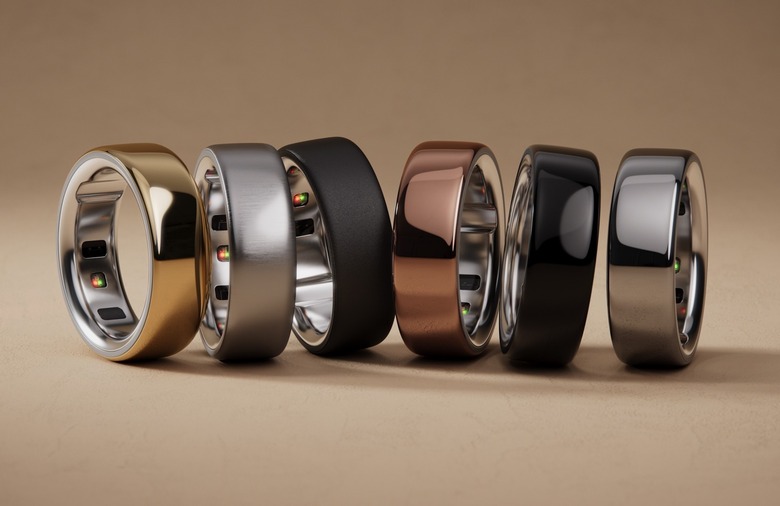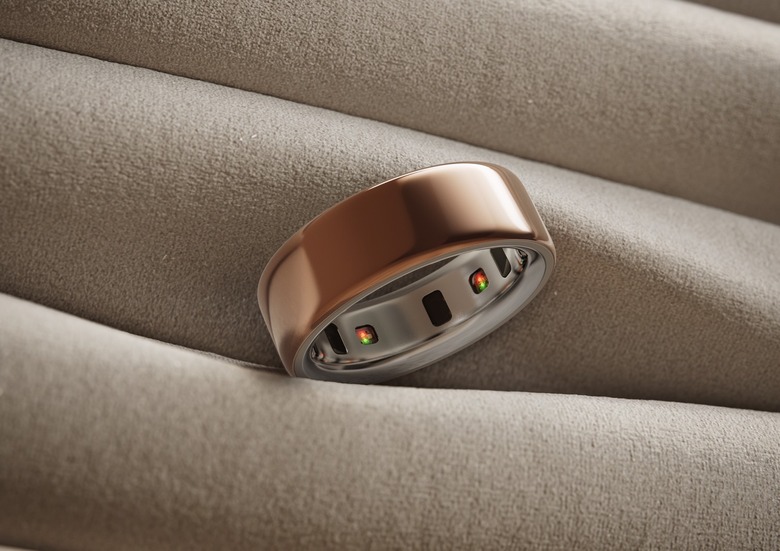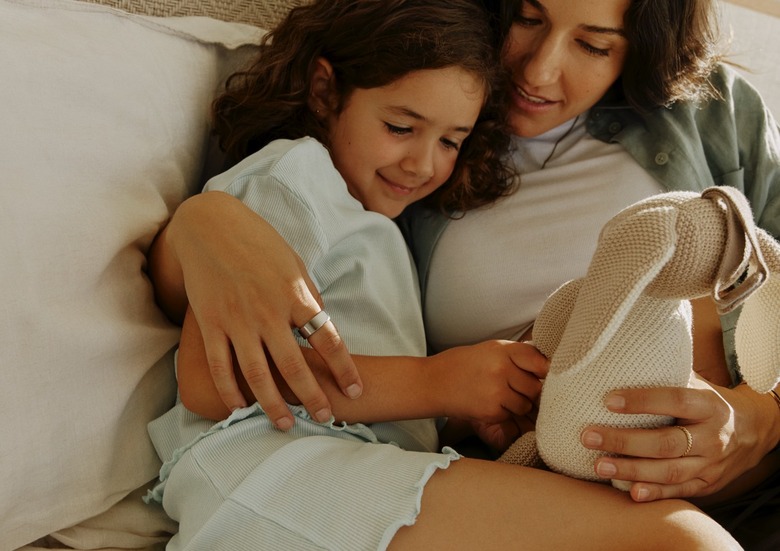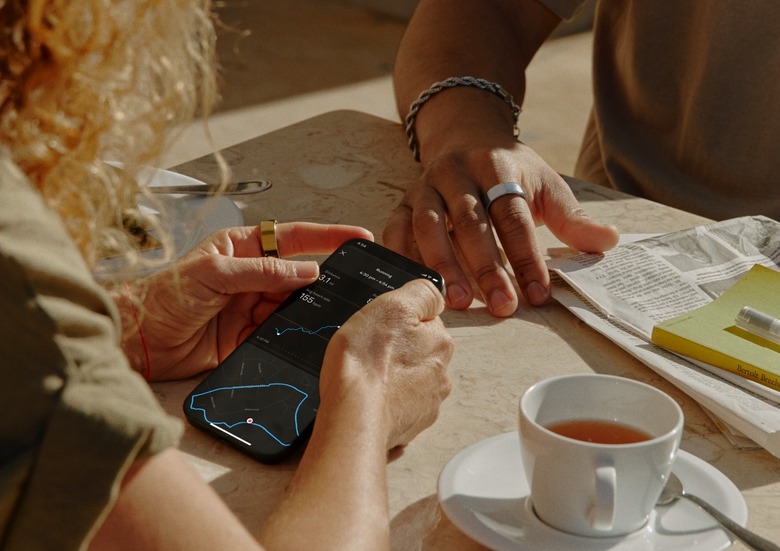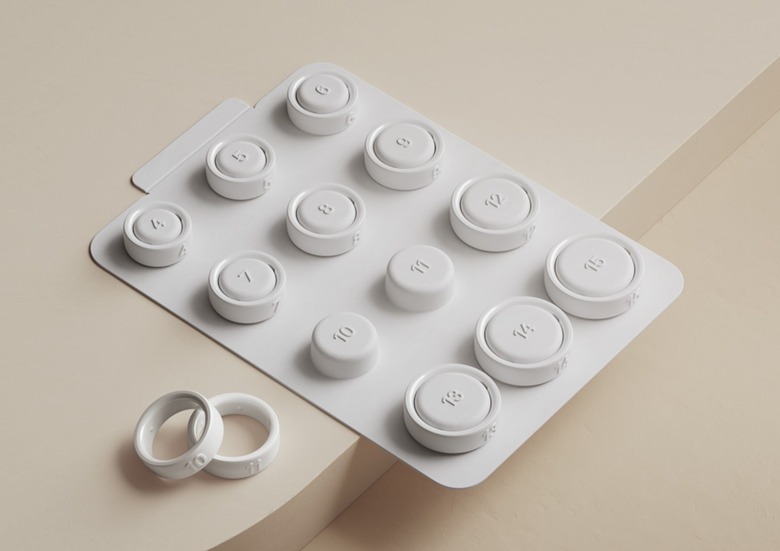All-Titanium Oura Ring 4 Comes With Better Health Sensors And More Size Options
Oura on Thursday announced its next-gen wearable, the Oura Ring 4, which features an all-titanium design and comes in several new sizes.
Its health-tracking features are more interesting than the design updates, as Oura has improved its algorithms to increase health data tracking accuracy. This technology, called Smart Sensing, should significantly improve health data collection over its predecessor while also boosting battery life.
Finally, Oura has updated its mobile app to make it even easier to see health and fitness data at a glance, whether looking for information about your day or exploring trends.
The all-titanium design
The Oura Ring 4 will bring various design changes compared to its predecessor. It's made out of titanium like the Ring 3, but this time, Oura also used titanium on the inside of the wearable. More importantly, the sensors are recessed rather than having raised dome sensors. That's a change that should improve comfort and fit while also boosting health tracking.
The Oura Ring 4 weighs between 3.3g and 5.2g depending on size. You get extra sizes for this model, ranging from 4 to 15. Oura said in its announcement that its rings have grown in popularity with women. That explains the additional sizes, though Oura has expanded sizes in both directions. Previously, you could choose Oura Ring sizes between 6 and 13.
The larger models will get the better battery life. That's up to 8 days on a charge, thanks to that Smart Sensing algorithm.
Finally, the Oura Ring 4 will be available in six color options: silver, black, brushed silver, stealth, gold, and rose gold.
Oura Ring 4's Smart Sensing tech
While I'd certainly appreciate design changes from a new ring generation, the health-tracking abilities are more important. That's what captured my attention in Oura's announcement.
Oura says it has developed new algorithms to improve health tracking for the Ring 4 so the device can adapt to various finger physiologies. The algorithm takes into account your skin tone, age, and BMI when performing readings.
Those recessed sensors are placed asymmetrically within the ring to provide "a variety of distances and tissue penetration depths for measurements."
The Oura Ring 4 sensors form an 18-path multi-wavelength photoplethysmography (PPG) subsystem, a big upgrade from the 8-path PPG system used before.
The ring tracks various health parameters, including heart rate, heart rate variability, sleep stages, blood oxygen levels, VO2 Max, and stress. It can also assist with cycle tracking and fertility windows, and the Ring 4 will keep track of plenty of fitness routines. When it comes to automatic activity tracking, the Ring 4 will support about 40 different types.
As for the reliability of the data it collects, Oura conducted a sleep study to compare the Ring 4 to the Ring 3 and found several improvements for the new generation.
The new ring is 30% more accurate at measuring blood oxygen overnight, 15% more accurate for the breathing disturbance index (BDI) measurements, and shows 31% fewer gaps in the nighttime heart rate graph. The Oura Ring 4 also shows 7% fewer gaps in the daytime heart rate.
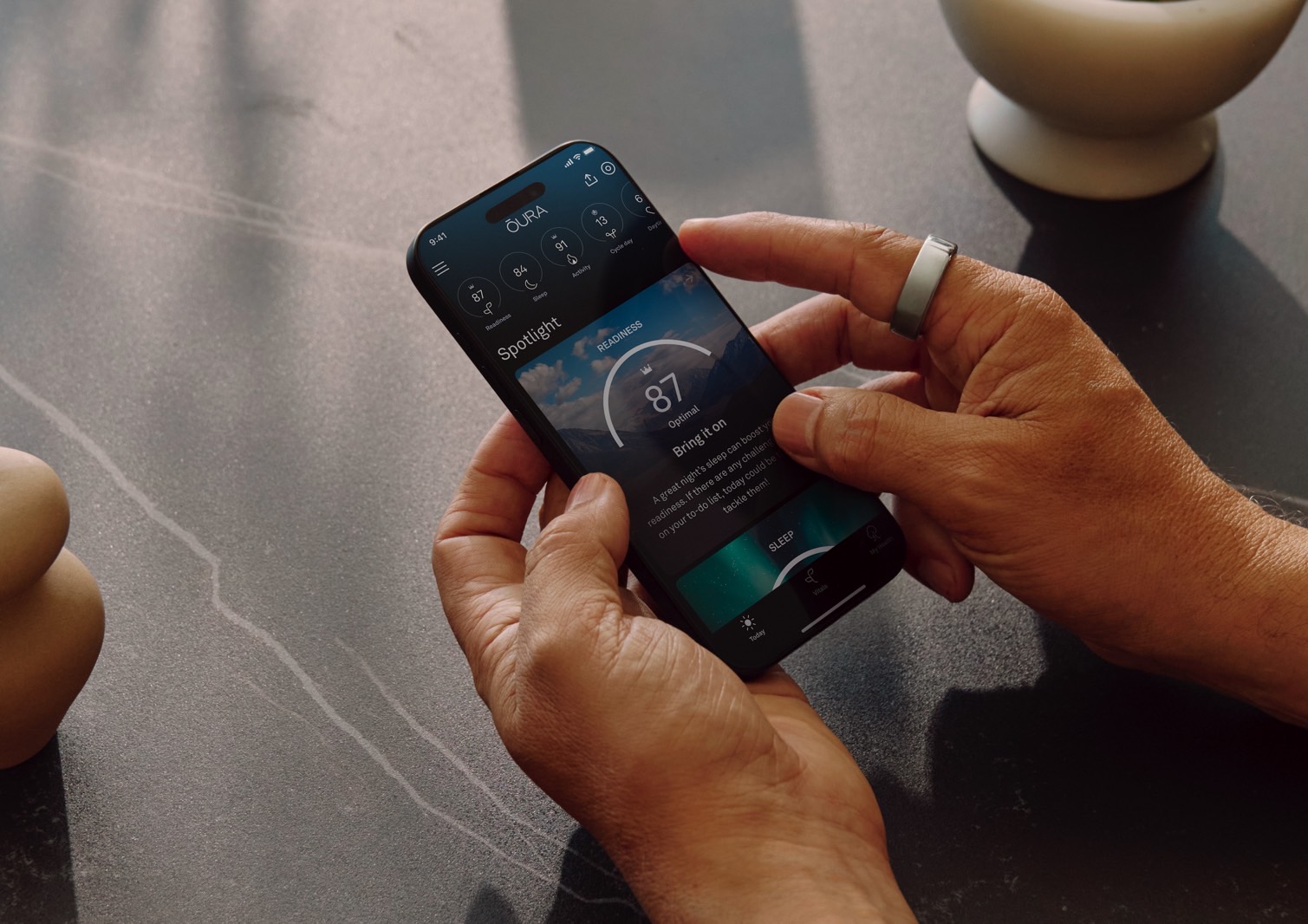
The Smart Sensing tech also plays a role in extending the battery life of the Oura Ring 4. It adjusts the brightness of the LEDs dynamically, going for the dimmest possible setting to reach the desired signal quality. As a result, the Ring 4 models can last for up to 8 days on a charge.
The new Oura App
All that health and fitness data will be available in the Oura App, which Oura redesigned to make it easier to handle. The company acknowledged that the old app might have made it more difficult to find certain health data, as Oura kept adding new features to its rings.
The new app features a new interface centered around three main tabs that replace the five tabs in the previous app. Instead of Home, Readiness, Sleep, Activity, and Resilience, you're getting Today, Vitals, and My Health.
The Today tab will show you health information about your day, with Oura comparing it to the "Top Stories" of a news app. This is where you'll find shortcuts to Sleep, Readiness, Activity Scores, heart rate, Cycle Insights, and Daytime Stress. You'll also get a timeline feature that tracks your day and a discoveries section.
You'll have to go to the Vitals tab for a more in-depth look at the health information the Oura Ring 4 collects. This is where you'll find all your health metrics, including some that also appear in the Today tab. But you're also getting more detailed information about them, like baseline ranges and additional details for each parameter.
Finally, the My Health tab will focus on your long-term health, allowing you to observe your progress since you've been wearing Oura Rings to track your health data. You'll get weekly, quarterly, and yearly reports to show your progress. You'll be able to share them with your doctors, too, if needed.
Price and release date
If all that sounds exciting, you'll probably want to get a Ring 4 as soon as possible. The good news is that Oura is taking preorders ahead of the October 15th release date. The bad news is that the Oura Ring 4 price has increased by $50, so you'll have to pay $349 for the new model.
New buyers will need to order sizing kits to ensure a good fit. If upgrading from a previous model, Oure recommends getting a new sizing kit for the Ring 4.
The membership
The Oura membership app price hasn't changed. It's still $5.99 per month or $69.99 per year. The membership gives you access to improved features. You can track activity across over 40 activities, with the Automatic Activity Detection (AAD) feature automatically monitoring heart rate and heart rate zones.
The Daytime Stress feature will help you better understand how to deal with daily stress. It will feature additional information, including daily movement and activities.
Oura also introduced a new Fertile Window feature for women to help with pregnancy planning. Cycle Insights will show estimated fertile days, the chance of conception at that time, and the detected day of ovulation. But the feature isn't designed to help you prevent pregnancies. You should use other tools for that.
